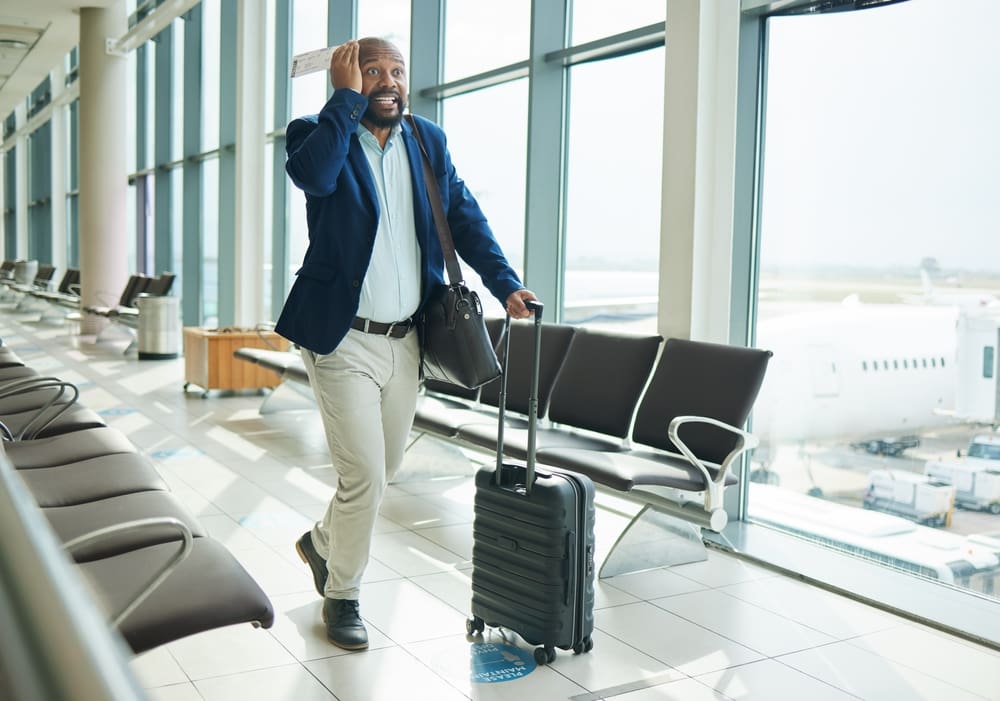Flying, for many, is a convenient means to travel great distances in a relatively short period. However, for a significant number of people, the thought of flying evokes a sense of dread, leading to anxiety that can range from mild unease to severe panic attacks. Understanding the roots of this anxiety and exploring methods to manage it can transform the flying experience from a nightmare into an enjoyable journey. This article delves into the five main reasons behind flight anxiety and provides practical strategies for overcoming these fears.
Understanding flight anxiety
Before we dive into the specifics, it’s essential to recognize that flight anxiety is a common issue affecting passengers worldwide. It stems from various factors, each playing a significant role in how individuals perceive and react to the idea of flying.
1. Fear of heights (Acrophobia)
One of the primary reasons people feel anxious about flying is the fear of heights. Being high above the ground in an airplane can trigger vertigo and a feeling of vulnerability.
How to overcome it
– Mindfulness and breathing exercises: Practice deep breathing techniques and mindfulness to calm your nerves. Focusing on your breath can help ground you and reduce the physiological symptoms of anxiety.
– Choose aisle seats: Booking an aisle seat can limit your view of the outside, helping to keep your mind off the altitude.
2. Claustrophobia
The confined space of an aircraft can be daunting for those who fear being in tight, enclosed places. The inability to exit at will exacerbates this fear.
How to overcome It
– Familiarize yourself with the environment: Visit the airport and aircraft ahead of time if possible. Familiarity can reduce the stress of confinement.
– Engage in distraction techniques: Bring books, movies or music that can help distract you and make the space feel more personal and less confining.
3. Loss of control
Many individuals experience anxiety due to the feeling of not being in control in an airplane. The act of entrusting one’s safety to the pilots and the aircraft can be unsettling.
How to overcome it
– Educate yourself: Learning about the safety measures and the rarity of aviation accidents can help put your fears into perspective.
– Practice letting go: Techniques such as meditation or cognitive-behavioral therapy (CBT) can help you work through feelings of control loss.
4. Fear of turbulence
Turbulence can be a scary experience for many flyers, especially those who do not understand its nature. The sudden shakes and jolts can easily be misinterpreted as a sign of danger.
How to overcome it
– Understand turbulence: Educate yourself on the causes of turbulence and remember it’s a normal part of flying that pilots are trained to handle.
– Use relaxation techniques: When turbulence hits, practice deep breathing or listen to calming music to manage your reaction.
5. Past traumatic experiences
Previous negative experiences with flying can leave a lasting impact, causing individuals to relive those moments every time they board a plane.
How to overcome it
– Seek professional help: Talking to a therapist can help you work through your past experiences and develop coping strategies.
– Consider gradual exposure: Gradually exposing yourself to flying, starting with short flights, can help desensitize your fears.
General tips for managing flight anxiety
– Prepare for your flight: Being well-prepared can help alleviate anxiety. Check in online, arrive at the airport early and have all necessary documents handy.
– Stay hydrated and avoid caffeine and alcohol: Keeping hydrated helps your body manage stress better, while avoiding stimulants and depressants can prevent exacerbation of anxiety.
– Communicate: Don’t hesitate to inform the flight attendants that you’re anxious about flying. They are trained to help and can provide reassurance and support.
Anxiety when flying is a multifaceted issue, rooted in various fears and past experiences. By understanding the reasons behind this anxiety and employing strategies to address them, individuals can start to feel more comfortable and even enjoy flying. Remember, it’s okay to seek professional help if your anxiety feels overwhelming. With the right tools and support, the sky is no longer a limit but a gateway to new adventures.
This story was created using AI technology.

















